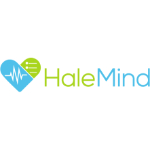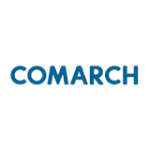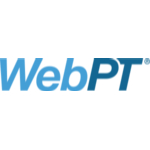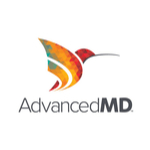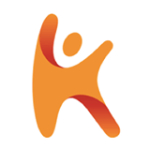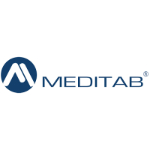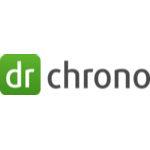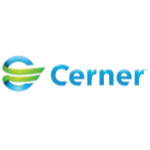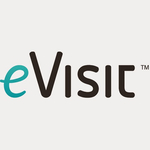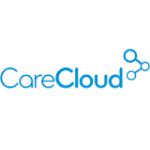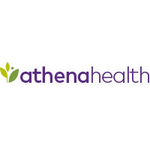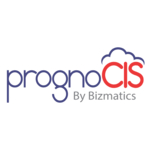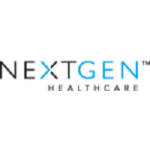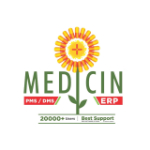TechnologyCounter provides genuine, unbiased real user reviews to help buyers make informed decisions. We may earn a referral fee when you purchase through our links, at no extra cost to you.
List of 15 Best Healthcare Software
Showing 1 - 15 of 146 productsHalemind, the innovative software designed to enhance your mind and optimize your performance. With its advanced features and user-friendly interface, Halemind is a tool for boosting your cognitive abilities and achieving your goals. Say hello to a s...Read Halemind Reviews
Comarch, a global leader in business software solutions. With over 25 years of experience, Comarch offers innovative products that streamline processes, increase efficiency, and drive business growth. Our client-focused approach delivers tailored sol...Read Comarch Reviews
WebPT is a trusted and innovative software designed specifically for physical therapists, occupational therapists, and speech language pathologists. This powerful platform streamlines workflows and documentation, allowing therapy professionals to foc...Read WebPT Reviews
AdvancedMD is a intuitive and innovative software solution tailored for healthcare professionals. With its user-friendly interface features, AdvancedMD streamlines administrative tasks, enhances patient care, and improves overall practice efficiency...Read AdvancedMD Reviews
Kareo is a and innovative healthcare technology company that offers a wide range of solutions for healthcare providers. With its user-friendly software and customizable features, Kareo aims to simplify and streamline daily tasks, improve patient care...Read Kareo Reviews
SimplePractice is a practice management software designed to help professionals in the healthcare and wellness industry efficiently manage their daily tasks. With user-friendly features and a sleek interface, SimplePractice streamlines administrative...Read SimplePractice Reviews
Meditab is a software for healthcare professionals. With user-friendly features and streamlined processes, Meditab makes managing patient data, appointments, and financials a breeze. Say goodbye to cumbersome paperwork and hello to a more efficient a...Read Meditab Reviews
drchrono EHR is a electronic health record platform that streamlines medical processes, boosts efficiency, and improves patient care. With its advanced features and user-friendly interface, drchrono is transforming the healthcare industry and enablin...Read drchrono EHR Reviews
Oracle Cerner is an innovative health care technology company that specializes in providing solutions for medical organizations. With its advanced software systems and cutting-edge technology, Oracle Cerner is dedicated to helping healthcare professi...Read Oracle Cerner Reviews
eVisit is a software that offers virtual healthcare solutions to patients, making it easier than ever to connect with healthcare providers from the comfort of their own homes. With a user-friendly interface and secure communication tools, eVisit is c...Read eVisit Reviews
CareCloud is a cloud-based healthcare software designed to streamline and simplify administrative tasks, enhance patient care, and improve overall efficiency for medical practices. With its user-friendly interface and innovative features, CareCloud i...Read CareCloud Reviews
Athenahealth is the game-changing software that is transforming the healthcare industry. With its innovative tools and superior technology, athenahealth is streamlining and improving the way medical professionals provide care to their patients. Disco...Read athenahealth Reviews
PrognoCIS EMR PrognoCIS EMR is a electronic medical records software designed to streamline and optimize healthcare practices. With its user-friendly interface features, PrognoCIS EMR provides healthcare professionals with a comprehensive is a soluti...Read PrognoCIS EMR Reviews
NextGen is a future of technology and innovation. This revolutionary software is transforming the way businesses operate and changing the landscape of industries. With its advanced capabilities and user-friendly interface, NextGen is paving the way f...Read NextGen Reviews
Medicin is a new software that is transforming the way healthcare professionals manage patient records. With its user-friendly interface features, Medicin streamlines processes and improves efficiency, allowing medical teams to focus on providing top...Read Medicin Reviews
- What Is Healthcare Software?
- Top Reasons Why Businesses Need Healthcare Software?
- What Are the Top Key Features of Healthcare Software?
- What Are the Top Benefits of Healthcare Software?
- What Are the Steps to Choose the Right Healthcare Software?
- What Are the Types of Healthcare Software for Different Industries?
- What Are the Technology Trends for Best Healthcare Software?
- What Are the Deployment Options for Healthcare Software?
What Is Healthcare Software?
Healthcare software is a sort of computer program that assists healthcare workers in providing better treatment to their patients. It often includes apps that enable personnel and teams to collect, store, and analyze patient data such as medical histories, vital signs, and test findings.
Additionally, healthcare management system software can be used to maintain thorough paper and electronic medical records, track patient treatments, manage invoicing and claims, and arrange visits. Essentially, top healthcare software equips healthcare workers and teams with the tools they need to provide better treatment with greater efficiency.
Healthcare software solutions can assist healthcare practitioners easily retrieve patient records, compare treatments, track patient progress, and identify trends to help improve medical procedures. These systems can also assist lower healthcare costs by expediting medical service delivery and enabling access to previously recorded data, avoiding the need for back-and-forth paperwork and other manual chores.
Cloud based healthcare software is becoming more sophisticated as technology progresses, and it is increasingly being linked into bigger medical systems. Modern electronic medical records (EMRs) are part of bigger health information systems that provide providers with unprecedented visibility into their patients' health and more possibilities to make educated decisions.
Healthcare software is assisting in the industry's transformation by allowing healthcare providers to cut paperwork and system expenses while boosting patient service.
Top Reasons Why Businesses Need Healthcare Software?
1. To organize patient information and improve the accuracy of medical records.
2. To improve the monitoring of chronic illnesses and the tracking of patient progress over time
3. Healthcare management system software enhances communication between healthcare practitioners and patients
4. Reduce paperwork and simplify administrative procedures
5. To quickly access patient information in an emergency.
6. Comply with government regulations while protecting patient privacy
7. To develop an integrated reporting and analytic system.
8. Individual patients will receive individualized and focused health care services.
9. Healthcare software solutions enhance data security and patient safety.
10. Automation of appointment scheduling, billing, and prescription refills
11. To track the use and functioning of medical devices
12. Predictive analytics and forecasting for proactive action
13. To use artificial intelligence (AI) and machine learning (ML) to improve diagnosis and treatment accuracy.
14. To deliver real-time insights and data analysis from various sources.
15. To save time and avoid errors when accessing or changing patient data.
What Are the Top Key Features of Healthcare Software?
1. Electronic Medical Records (EHR) Management: Healthcare software offers a safe, all-encompassing, and centralized repository for patient information, encompassing medical history, prescribed medications, and treatment strategies.
This technology facilitates the efficient and expeditious retrieval of crucial information by healthcare providers, hence enhancing the quality of care delivered.
2. Practice Management: Cloud based healthcare software facilitates the management of patient tracking, scheduling, billing, and appointment setting, hence optimizing the administrative and operational workflows inside a healthcare institution.
3. Insights and Analytics: Top healthcare software systems facilitates the generation of robust insights and analytics by leveraging patient medical history, therapies, and other essential data. This facilitates healthcare professionals in comprehending patterns and rendering well-informed judgments.
4. Clinical Decision Support: Clinical decision support systems utilize intelligent algorithms to offer information and guidance in the process of clinical decision-making. The utilization of evidence-based practices aids in the reduction of errors and facilitates the provision of quality care.
5. Clinical Documentation: The implementation of healthcare management system software has resulted in the automation of document management operations, leading to enhanced precision and effectiveness in the management of healthcare records. The system offers a structured framework that is readily accessible and amenable to analysis.
6. Electronic Health Records Integration: Healthcare software solutions facilitates streamlined data exchange among many companies and departments, hence enhancing operational efficiency. Additionally, it enables healthcare providers to facilitate the exchange of data with a patient's primary care physician or specialists.
7. Patient Portal: Patient portals are online applications that allow people to electronically access their medical information, engage in secure communication with healthcare practitioners, and effectively oversee their health management.
8. Telemedicine: Telemedicine solutions enable healthcare providers to deliver healthcare services remotely, eliminating the need for the patient's physical presence.
9. Real-Time Reporting: Top healthcare software enables the generation of real-time reports, thereby facilitating the automated collection of data and enhancing healthcare outcomes.
10. Business Intelligence: The utilization of business intelligence tools inside healthcare management system software enables healthcare practitioners to effectively leverage aggregated patient data from diverse sources, hence facilitating the acquisition of actionable insights to enhance decision-making processes.
What Are the Top Benefits of Healthcare Software?
1. Improved patient experience: Healthcare software possesses the capability to automate laborious procedures associated with patient care, including appointment scheduling and insurance claim submission. This automation enables healthcare personnel to allocate their efforts towards enhancing the quality of patient care.
2. Increased accuracy and efficiency: Healthcare software solutions offers enhanced accuracy and security in storing patient data and medical records compared to traditional paper records, alongside the added advantage of facilitating efficient search and retrieval of information as and when required.
3. Cost savings: The utilization of cloud based healthcare software has the potential to mitigate the financial burden associated with administrative tasks related to patient care, encompassing expenses related to personnel, resources, and physical documentation.
4. Better coordination of care: Healthcare software systems facilitates the expeditious and precise dissemination of information across diverse care professionals, enabling effective care coordination and ensuring up-to-date awareness of patient development.
5. Data security and privacy: Top healthcare software has the potential to mitigate the occurrence of patient information breaches through the implementation of robust security measures, such as secure storage and encryption of patient data.
6. Improved patient outcomes: Healthcare management system software has the capability to offer predictive analytics and data-driven insights, so assisting healthcare professionals in delivering enhanced patient care and achieving improved outcomes.
What Are the Steps to Choose the Right Healthcare Software?
1. Analyze the health care organizations needs: In order to effectively cater to the requirements of the organization, it is imperative to take into account both present and future needs in a comprehensive manner. This holistic approach will aid in identifying the most suitable software solution for the firm.
When doing a needs analysis, it is important to identify certain requirements, such as the ability to generate reports automatically, handle payment processes, manage scheduling and appointment reminders, maintain medical records and notes, and facilitate medication tracking and ordering.
2. Understand the available features and capabilities: Allocate a sufficient amount of time to thoroughly analyze the various features and capabilities offered by each system. This encompasses factors such as the financial implications, the necessary hardware and software prerequisites, the level of adaptability, the ability to integrate with current systems, and the intricacy of the proposed solution.
3. Research software vendors: Prior to making a decision on a software provider, it is advisable to conduct thorough research on alternative suppliers as well. Select a provider with a commendable standing and extensive tenure within the industry.
4. Test different solutions: After selecting a few healthcare software systems vendors, it is advisable to conduct comprehensive testing of their systems in order to gain a comprehensive understanding of the performance of each vendor's software.
The comprehensive assessment should encompass a diverse array of scenarios, encompassing routine operational procedures, effective patient care and management, customer service provision, accurate transactional data entry, and seamless connection with any pre-existing software systems.
5. Monitor performance: It is imperative to ensure that the software chosen possesses performance levels that align with the requirements of the firm. This can be achieved through the regular monitoring of its performance and ensuring that it aligns with the requirements of the organization.
6. Evaluate the support: The provision of effective customer assistance is crucial for ensuring the proper utilization of software. It is advisable to allocate sufficient time for the assessment of customer support services provided by various providers, with a focus on prompt response times and efficient resolution of any encountered issues.
What Are the Types of Healthcare Software for Different Industries?
There are many different types of healthcare software available for a variety of industries. These include, but are not limited to:
1. Electronic Health Record (EHR) Software - This particular program is commonly employed for the purpose of storing and effectively managing health information pertaining to patients.
2. Practice Management Software - The aforementioned software is utilized for the purpose of facilitating the management of medical practices, encompassing tasks such as patient scheduling and billing.
3. Digital Health Solutions - The aforementioned solutions are specifically developed to facilitate a range of healthcare activities, including but not limited to remote patient monitoring, telemedicine services, clinical decision support systems, and patient engagement initiatives.
4. Medical Imaging Software - The aforementioned software is utilized for the purpose of observing, organizing, and storing digital photographs.
5. Telemedicine Solutions - This particular program is specifically developed to enhance the provision of remote medical care, including the facilitation of online doctor consultations.
6. Pharmacy Management Software - The software in question facilitates the management of pharmacy operations, encompassing tasks such as inventory tracking and medicine dispensation.
7. Healthcare Analytics Software - This software is employed for the purpose of gathering and scrutinizing patient data with the aim of identifying areas of enhancement and potential inside a healthcare software systems.
8. Medical Billing Software - The aforementioned software is employed for the purpose of overseeing and organizing billing and collections procedures, encompassing activities such as claim submission, payment processing, and patient reimbursement.
What Are the Technology Trends for Best Healthcare Software?
In terms of technology trends, there are a few main areas of focus when it comes to healthcare software.
These include:
1. Machine Learning: Healthcare companies can enhance their understanding and response to recorded information by utilizing algorithms and analytics to collect and refine data. This enables them to forecast and prevent diseases, as well as deliver enhanced treatment to patients.
2. Big Data: The storage and analysis of substantial volumes of data enable healthcare companies to gain a deeper comprehension of their patients' requirements and enhance their ability to provide more precise treatments and services.
3. Data Mining: By leveraging the vast quantities of accessible data, makers of healthcare software can more readily discern, comprehend, and execute efficacious healthcare interventions.
4. Cloud Computing: Healthcare businesses can enhance their ability to access, exchange, and manage data by leveraging cloud technology, thereby facilitating enhanced continuity of care and enhancing patient outcomes.
5. Mobile Connectivity: The integration of data from many sources facilitated by wearables, smartphone apps, and other connected devices has enabled healthcare software vendors to offer individualized care to patients in a smooth manner.
What Are the Deployment Options for Healthcare Software?
In the realm of healthcare software, three primary deployment choices exist, namely cloud-based, on-premise, and hybrid.
1. The utilization of a cloud-based deployment option presents a financially advantageous resolution, facilitating customers' ability to access healthcare software through an internet connection and a web browser.
Cloud based healthcare software enables the remote retrieval and manipulation of data, all inside a secure and protected environment. Additionally, they possess a higher level of ease when it comes to both initial setup and ongoing maintenance.
2. The on-premise deployment option entails the installation and operation of healthcare software within the physical premises of an organization. This particular deployment strategy necessitates an initial investment in equipment, which might potentially incur significant costs.
Additionally, the successful implementation of this technology necessitates the establishment of a robust infrastructure capable of supporting the requisite hardware and software components. The benefits associated with this particular solution encompass heightened system security and enhanced control.
3. The hybrid deployment option encompasses a blend of solutions, encompassing both cloud-based and on-premise alternatives. This software system is very suitable for firms that necessitate a healthcare system that is secure, private, and dependable. The advantages encompassed in this context comprise of flexibility, control, scalability, and cost savings.
In brief, the healthcare software can be deployed through three primary choices, namely cloud-based, on-premise, and hybrid. When making decisions on the deployment of healthcare software, it is crucial to consider the pros and disadvantages associated with each available choice.
